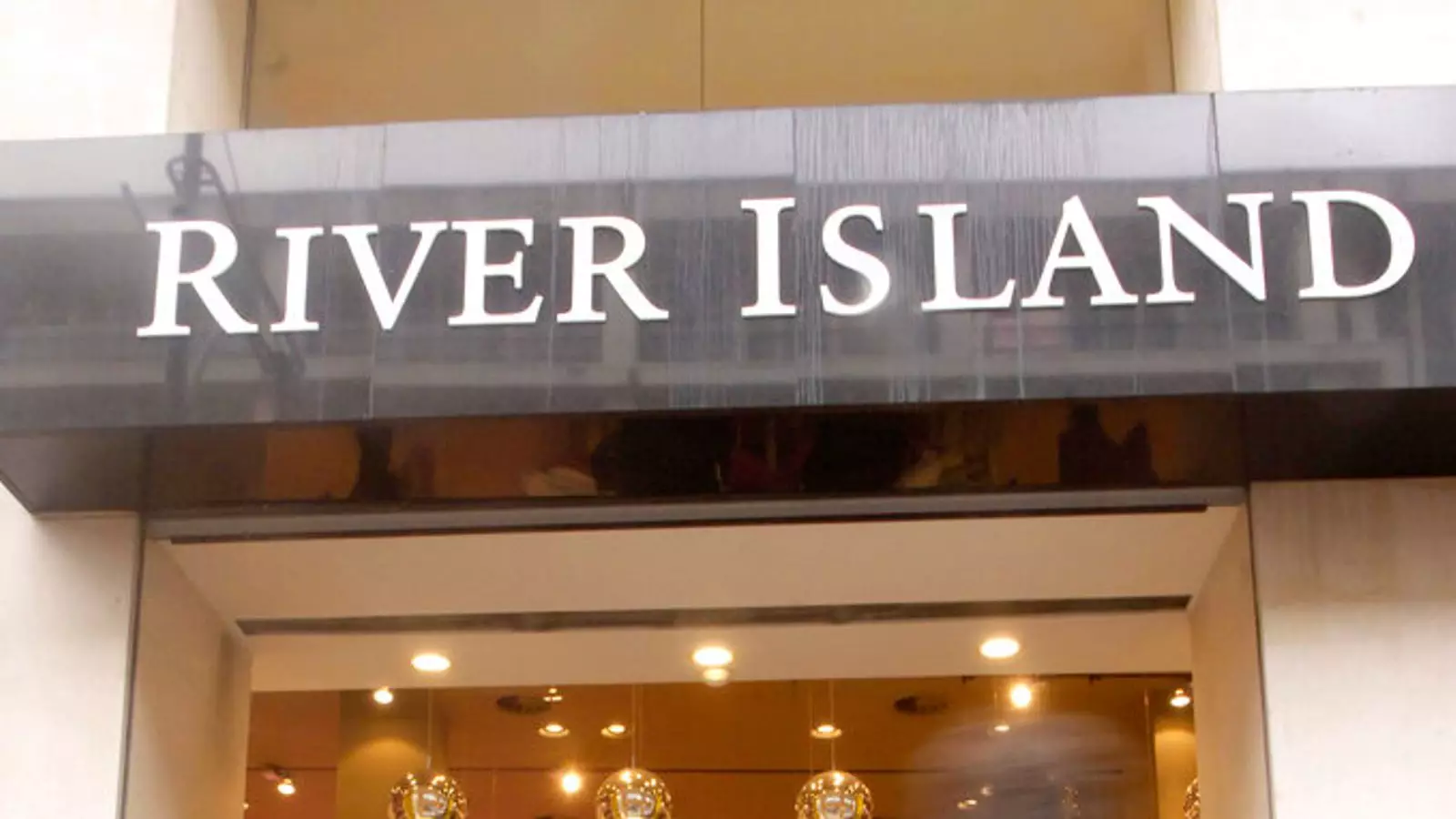The fashion landscape in the United Kingdom is witnessing a seismic shift, and River Island stands at a precarious junction. Once a titan of British retail, the family-owned chain is now grappling with dire financial strains that threaten to undermine its storied legacy. The troubling financials reveal a pre-tax loss of £33.2 million for the year ending December 2023, alongside a staggering 19% drop in turnover. This situation not only places approximately 5,500 jobs at risk but also poses a significant threat to the identity of a brand that has been an integral part of British high street culture since its inception in 1948.
Financial Turmoil: The Reality Check
River Island’s recent move to engage PwC for a restructuring plan underscores the harsh reality it faces. Such a drastic measure is not merely a tactical response but a desperate plea for survival amid overwhelming market conditions. The chain’s financial advisor, tasked with charting a course through turbulent waters, must navigate a minefield of challenges while simultaneously appeasing an increasingly impatient set of creditors. Restructuring does not necessarily imply a rebirth; it often heralds the painful excision of vital components, including beloved stores that have anchored River Island’s presence for decades.
The retail sector is relentless, with ever-increasing competition and evolving consumer expectations complicating the landscape further. River Island’s acknowledgment of the “multitude of financial and operational risks” it faces points to an awareness that may come too late. The brand’s failure to adapt rapidly to a rapidly digitizing market—where convenience trumps traditional retail experiences—has relegated it to a precarious perch.
The Transformation Dilemma
In a time when convenience permeates every facet of consumerism, clothing brands must evolve or risk extinction. River Island’s struggle reflects a broader phenomenon affecting many retailers as they navigate shifting paradigms in consumer behavior. The chain has seemingly recognized the need for transformation, yet its hesitance to fully embrace this change raises questions about its long-term viability. The once-clear lines delineating fast fashion are now blurred, and adapting to customer preferences necessitates a willingness to innovate, rather than cling to past successes.
Furthermore, reports indicate that the company’s struggle is compounded by external forces, such as rising inflation and geopolitical crises disrupting supply chains. These factors harmonize in a symphony of challenges, creating an environment in which River Island, like many others, is forced to operate at a disadvantage. The ensuing loss of consumer confidence amid a backdrop of mounting costs must compel the company to rethink its operational strategy existentially.
Politics and Perception: The Chancellor’s Role
The political climate swirling around River Island only exacerbates its plight. Recent tax changes introduced by Chancellor Rachel Reeves have added fuel to the fire, prompting discontent amongst retailers. The long-standing belief that the government must protect industries vital to economic vibrancy stands on shaky ground as well-known brands are pushed to the brink. Indeed, the very support that should help stabilize River Island appears overshadowed by the burgeoning crisis facing countless high street staples.
River Island is not alone in wrestling with this legislative environment—other retailers like Lakeland and Poundland are likewise trying to navigate through turbulent waters. The looming specter of ownership changes only thickens the air of uncertainty, as businesses weigh options that could radically alter their trajectories. For River Island, making its voice heard amidst the clamor of political discontent is crucial if it hopes to salvage its reputation and customer base.
A Crossroads of Change: The Future Landscape
Looking forward, River Island must seize the opportunity to redefine its narrative. Whether or not the restructuring plan materializes, this critical juncture serves as a wake-up call to the retail industry at large. The ability to adapt quickly to external pressures and evolving consumer demands will determine who survives in the competitive arena.
The potential fallout from a failed restructuring may cast a shadow over River Island’s future, but it is essential to maintain a glimmer of hope that this beloved brand can find its footing. Retail in Britain is by no means a dying art; rather, it demands ingenuity and audacity. Only time will tell if River Island possesses the resilience necessary to navigate these turbulent waters, reclaim its sense of identity, and emerge successfully transformed from this crisis.


Leave a Reply